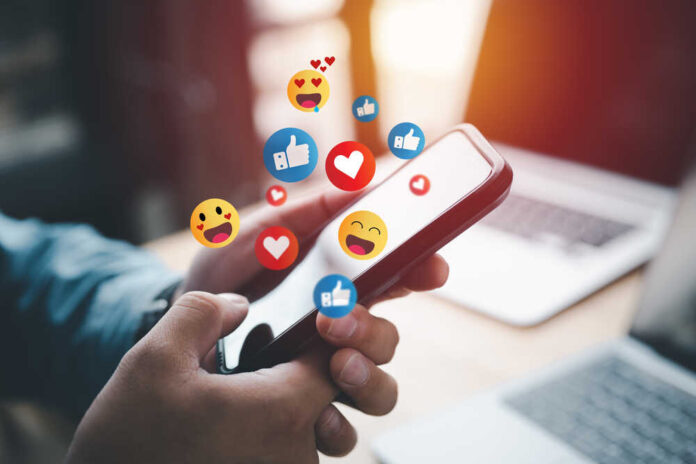
In the early days of the internet, the world experienced an explosion of ideas, opportunities, and connections, rendering physical boundaries meaningless. This was a revolution in itself.
But the true seismic shift arrived with the advent of social media.
From light-hearted memes that trigger a chuckle to impactful stories that incite our emotions, social media has emerged as an omnipresent force, reshaping how we relate to one another — reshaping how we relate to ourselves.
The Emotional Ecosystem of Social Media
In the realm of social media, emotions are no longer private experiences. They’re shared, reacted to, and amplified in a digital emotional ecosystem. Our emotions, joys, fears, anxieties, are put out for public scrutiny, inevitably intertwined with likes, shares, and comments.
Social media redefines the boundary between personal and public, placing our emotional well-being on a thin edge.
It can bring joy, validation, and a sense of belonging when a post resonates with others. But when we expose our vulnerabilities to public critique, it can also contribute to feelings of inadequacy, loneliness, and heightened anxiety.
The Double-Edged Sword of Connection and Comparison
Social media excels in connecting people. It enables us to draw comfort from shared experiences, broaden our perspectives, and form connections beyond geographical barriers. Yet, this benefit is shadowed by an insidious pitfall – comparison.
Comparing our lives to others’ carefully curated highlight reels breeds a skewed perception of reality. The resulting ‘comparison despair’ can have detrimental effects on mental health, fostering feelings of inadequacy, fostering feelings of loneliness, and significantly contributing to depression and anxiety.
The Distortion of Time and Attention
One of the less obvious impacts of social media is its influence on our attention span. The infinite scroll of news feeds, designed to hook and hold our engagement, subtly warps our perception of time. The risk is a state of constant partial attention, where our focus is persistently divided.
This scenario can breed a unique form of techno-stress, where our digital habits begin to detrimentally affect our cognitive health.
Our ability to be present, engage meaningfully with our surroundings, and forge genuine human connections can be compromised by the unrelenting call of social media notifications.
Social Media Mindfulness
While social media is pretty much inescapable, you can learn to create a healthier relationship with social media, transforming it from a source of stress to a tool for connection and personal growth.
Here are some tips to help you practice digital wellness in your daily routine:
- Mindful Consumption: Curate your digital environment to align with your mental
well-being. Choose to follow accounts that inspire positivity, educate, and uplift you, and unfollow those that trigger feelings of inadequacy or dissatisfaction. - Set Clear Boundaries: Establish designated times to disconnect from social media and engage in other activities that nourish your well-being. This could include reading, outdoor activities, meditation, or spending time with loved ones.
- Intentional Engagement: Use social media with a clear intention rather than mindless scrolling. Whether it’s to learn something new, connect with loved ones, or engage with your interests, let your actions on social media be guided by purposeful intent.
- Digital Detox: Schedule regular digital detox sessions to give your mind a break from the constant influx of digital information. This could be for a few hours, a day, or even a few weeks, depending on what feels right for you.
- Self-Care Online: Apply self-care practices to your digital habits. This could include muting certain notifications, personalizing your feeds, or using wellness apps that support your mental health.
- Mindfulness Practice: Develop a mindfulness practice related to your digital habits. This could be taking a few deep breaths before opening a social media app, or consciously checking in with your emotions during and after using social media.
- Embrace Imperfection: Remember, it’s okay to not live up to the often unrealistic standards portrayed on social media. Embracing our imperfections and celebrating our unique journey can help reduce feelings of inadequacy and enhance self-esteem.
- Seek Professional Help: If feelings of anxiety, depression, or loneliness become overwhelming, reach out to mental health professionals. There’s no shame in seeking help, and professionals can provide valuable tools and techniques to navigate these feelings.
Understanding the complex dynamics of social media and its impacts on mental health can empower us to navigate the digital world mindfully and healthily. By implementing these digital wellness strategies, we can foster a balanced relationship with social media, using it as a tool for connection and growth rather than a source of stress.






















